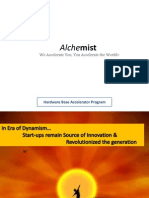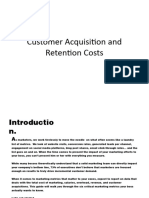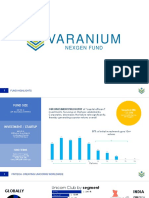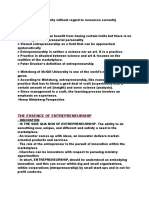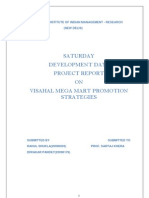0% found this document useful (0 votes)
86 views18 pagesWhat Venture Capitalists Look For in Startups
The article outlines what venture capitalists look for in startups, emphasizing the importance of scalability, product-market fit, and market opportunity. It highlights key factors such as team strength, financial health, and competitive advantage that can influence funding decisions. Founders are encouraged to tailor their pitches and prepare for due diligence to improve their chances of securing investment.
Uploaded by
kien.nguyen3Copyright
© © All Rights Reserved
We take content rights seriously. If you suspect this is your content, claim it here.
Available Formats
Download as PDF, TXT or read online on Scribd
0% found this document useful (0 votes)
86 views18 pagesWhat Venture Capitalists Look For in Startups
The article outlines what venture capitalists look for in startups, emphasizing the importance of scalability, product-market fit, and market opportunity. It highlights key factors such as team strength, financial health, and competitive advantage that can influence funding decisions. Founders are encouraged to tailor their pitches and prepare for due diligence to improve their chances of securing investment.
Uploaded by
kien.nguyen3Copyright
© © All Rights Reserved
We take content rights seriously. If you suspect this is your content, claim it here.
Available Formats
Download as PDF, TXT or read online on Scribd
/ 18







